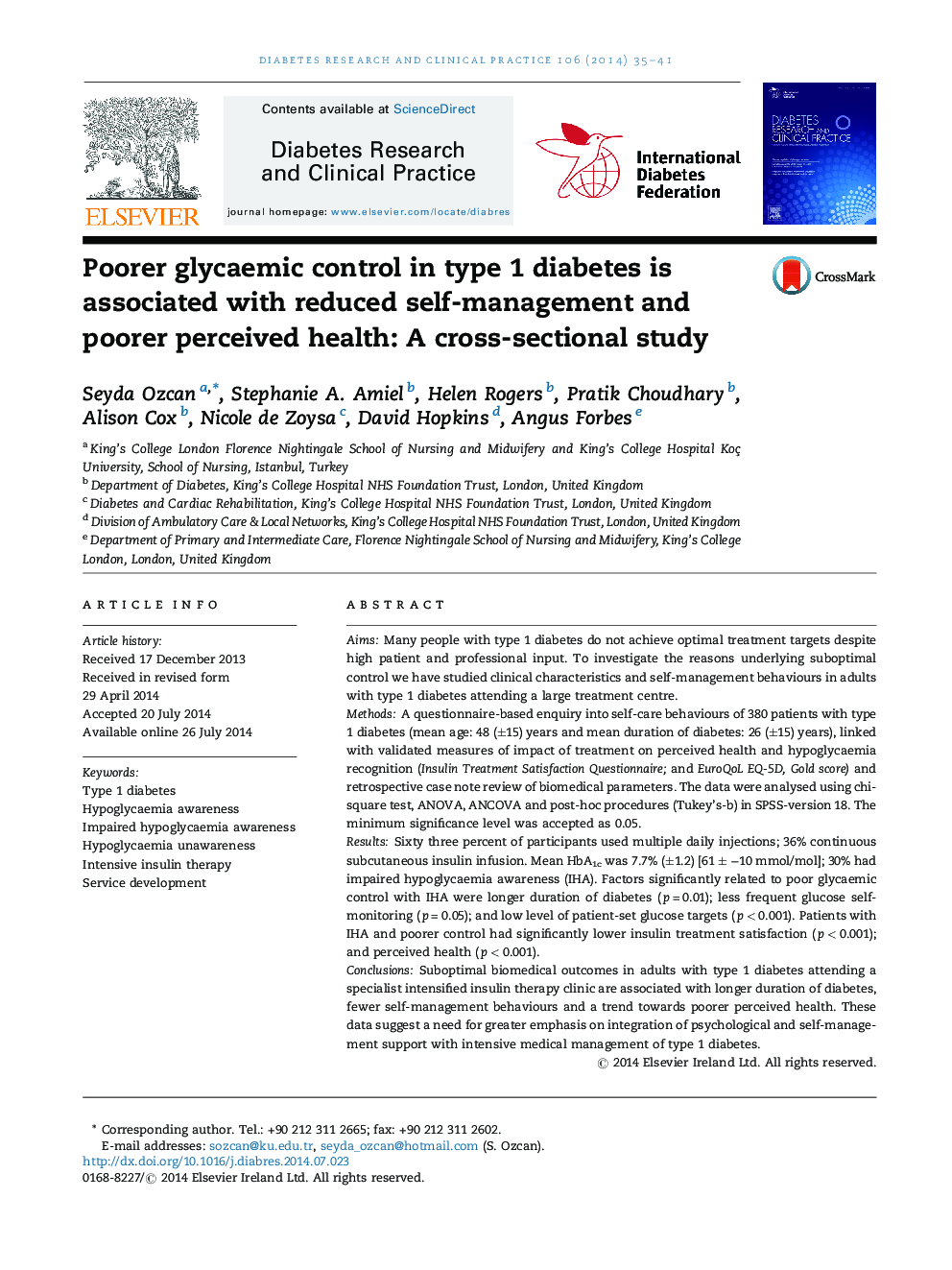| کد مقاله | کد نشریه | سال انتشار | مقاله انگلیسی | نسخه تمام متن |
|---|---|---|---|---|
| 2796627 | 1155609 | 2014 | 7 صفحه PDF | دانلود رایگان |
AimsMany people with type 1 diabetes do not achieve optimal treatment targets despite high patient and professional input. To investigate the reasons underlying suboptimal control we have studied clinical characteristics and self-management behaviours in adults with type 1 diabetes attending a large treatment centre.MethodsA questionnaire-based enquiry into self-care behaviours of 380 patients with type 1 diabetes (mean age: 48 (±15) years and mean duration of diabetes: 26 (±15) years), linked with validated measures of impact of treatment on perceived health and hypoglycaemia recognition (Insulin Treatment Satisfaction Questionnaire; and EuroQoL EQ-5D, Gold score) and retrospective case note review of biomedical parameters. The data were analysed using chi-square test, ANOVA, ANCOVA and post-hoc procedures (Tukey's-b) in SPSS-version 18. The minimum significance level was accepted as 0.05.ResultsSixty three percent of participants used multiple daily injections; 36% continuous subcutaneous insulin infusion. Mean HbA1c was 7.7% (±1.2) [61 ± −10 mmol/mol]; 30% had impaired hypoglycaemia awareness (IHA). Factors significantly related to poor glycaemic control with IHA were longer duration of diabetes (p = 0.01); less frequent glucose self-monitoring (p = 0.05); and low level of patient-set glucose targets (p < 0.001). Patients with IHA and poorer control had significantly lower insulin treatment satisfaction (p < 0.001); and perceived health (p < 0.001).ConclusionsSuboptimal biomedical outcomes in adults with type 1 diabetes attending a specialist intensified insulin therapy clinic are associated with longer duration of diabetes, fewer self-management behaviours and a trend towards poorer perceived health. These data suggest a need for greater emphasis on integration of psychological and self-management support with intensive medical management of type 1 diabetes.
Journal: Diabetes Research and Clinical Practice - Volume 106, Issue 1, October 2014, Pages 35–41
